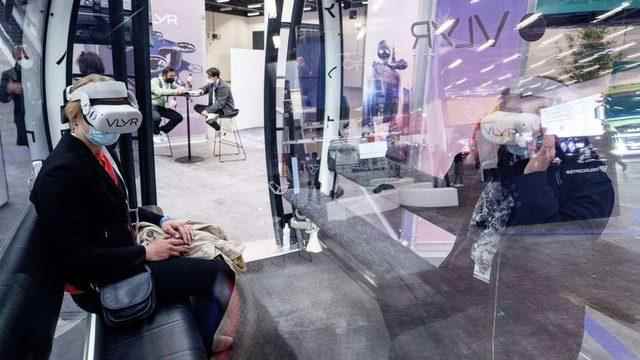Facebook announced that it plans to hire 10,000 people in European Union (EU) member countries to build the “metaverse” (fictional universe), the virtual reality version of the internet, which the technology giant sees as the future.
Facebook CEO Mark Zuckerberg was one of the main supporters in Silicon Valley of the idea of a fictional universe that would blur the lines between the physical world and the digital world.
This technology can make someone feel like they are face-to-face with a friend, for example, through virtual reality glasses. Even if they are thousands of kilometers apart and talk over the internet…
“The fictional universe has the potential to help unlock access to new creative, social and economic opportunities. And Europeans will reshape it from the ground up,” Facebook said in a blog post.
The announcement continued:
“Today we are announcing our plan to create 10,000 new high-skilled jobs within the European Union (EU) over the next five years.”
It was stated that “highly specialized engineers” would be among the recruits, but no information was given about other positions.
“The EU has a number of advantages that make it a great place for tech companies to invest in. A large consumer market, world-class universities and people of top talent…” the announcement said.
Was the announcement made as a distraction?
The announcement comes in the wake of massive disruptions to Facebook’s services and calls for regulation over its potential damaging effects on young people.
The former employee of Facebook, who leaked thousands of internal memos and documents to the press, said that Facebook did not take into account its internal research that could negatively affect the mental health of young people, and that he “prefers growth over safety”.
Last month, the Washington Post suggested that Facebook’s involvement in the fictional universe was “part of a broader effort to improve the company’s reputation with policymakers and reposition itself to shape the regulation of new internet technologies.”
But Zuckerberg said in July that he predicts Facebook will “go from being primarily a social media company to being a fictional universe company” within the next five years.
This gives the impression that he truly believes in the advent of the fictional universe age.
Facebook bought Oculus, a company that makes virtual reality glasses, for $2 billion in 2014, and has since been developing Horizon, a digital world where people can interact using VR technology.
In August, the company introduced “Horizon Workrooms,” where teams wearing virtual reality glasses hold meetings in a virtual room where they appear as cartoonish 3D versions of themselves.
The line between virtual and real is blurring
Fans of fictional universes point out that the internet is already beginning to blur the lines between virtual and real experiences.
Stars like pop singer Ariana Grande and rapper Travis Scott took the stage for them via the popular video game Fortnite, while large audiences were sitting in their homes.
You can already get a job as a dealer in the virtual casino of Decentraland, another online platform seen as the pioneer of the fictional universe.
Facebook isn’t the only company pouring millions into developing technology that could make a full-fledged version of the fictional universe come true.
Epic Games, which develops Fortnite, announced earlier this year that it has raised $1 billion in new funding and will use some of that money to support its vision of the fictional universe.
